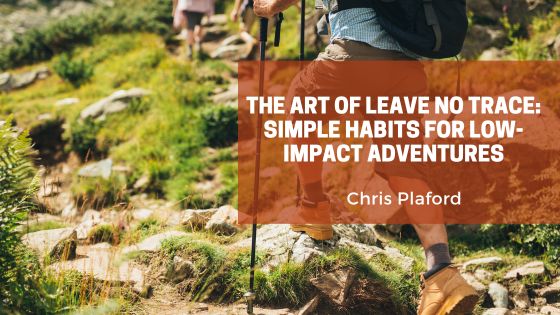Exploring the outdoors offers a unique connection to nature, but with that privilege comes responsibility. The “Leave No Trace” philosophy is more than just a set of guidelines—it’s a mindset that ensures our adventures don’t harm the environments we cherish. By adopting a few simple habits, every hiker, camper, or explorer can reduce their footprint and preserve natural spaces for future generations.
Plan Ahead and Prepare
Many environmental impacts occur because adventurers aren’t adequately prepared. Researching trail conditions, regulations, and weather forecasts before you go can prevent last-minute changes that could harm fragile areas. Pack reusable containers, bring the right gear, and understand the local rules. A little preparation minimizes waste and keeps you on designated paths.
Travel and Camp on Durable Surfaces
Nature is resilient, but repeated trampling can destroy delicate ecosystems. Stick to established trails and campsites, or choose durable surfaces like rock, gravel, or dry grass when setting up camp. Avoid creating new paths, as these can cause erosion and disrupt wildlife habitats.
Dispose of Waste Properly
“Pack it in, pack it out” is a golden rule. This includes all trash, leftover food, and even biodegradable waste like fruit peels. Human waste should be disposed of following local guidelines—either by burying it in a small “cat hole” at least 200 feet from water or carrying it out in a waste bag where required.
Leave What You Find
While it’s tempting to take home a rock, flower, or artifact as a souvenir, these items belong in their natural environment. Removing them disrupts ecosystems and diminishes the experience for others. Instead, take photographs and leave the landscape as you found it.
Minimize Campfire Impact
Campfires can cause lasting damage, from scarring the ground to starting wildfires. Where fires are permitted, use existing fire rings, keep flames small, and burn only small sticks that can be broken by hand. Better yet, opt for a lightweight camp stove, which leaves no trace and cooks food more efficiently.
Respect Wildlife
Wild animals should be observed from a distance. Feeding them, even unintentionally by leaving food scraps, can alter their natural behavior, making them dependent on humans or aggressive toward visitors. Store food securely and avoid getting too close, no matter how friendly an animal seems.
Be Considerate of Others
Leave No Trace isn’t just about protecting nature, it’s also about creating a positive outdoor experience for everyone. Keep noise levels low, yield to other trail users, and respect the solitude of those around you. A little courtesy ensures that natural spaces remain enjoyable for all.
Embracing Leave No Trace principles doesn’t require extreme effort, just mindful choices. Whether you’re backpacking in remote wilderness or enjoying a day hike, these small actions add up to a big difference. By practicing low-impact habits, we not only protect the places we love but also set an example for others to follow, ensuring our wild spaces stay wild for years to come.

